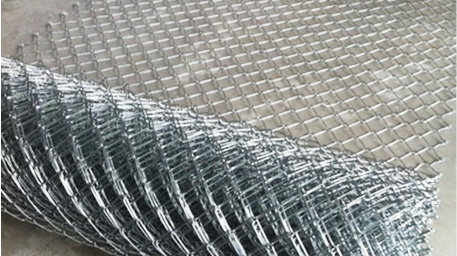-
+86 15030157877
-
sales@galvanizedmetalmesh.com
Oct . 11, 2024 04:14 Back to list
Quality Expanded Metal Solutions from Trusted Suppliers for Your Project Needs
Understanding Expanded Metal A Guide to Choosing the Right Supplier
Expanded metal is a versatile material widely used across various industries, renowned for its strength, lightweight nature, and adaptability. As businesses and individuals seek reliable sources for this unique product, choosing the right expanded metal supplier can significantly influence both the quality of the final product and the efficiency of the project. In this article, we will explore the characteristics of expanded metal, its applications, and tips for selecting the right supplier.
What is Expanded Metal?
Expanded metal is created from a solid sheet of metal that is cut and stretched to form a mesh-like structure. This manufacturing process gives it remarkable strength while maintaining a lightweight profile, making it suitable for various applications. The openings in expanded metal can vary in size and shape, which contributes to its utility in different contexts. Common materials used for expanded metal include steel, aluminum, and stainless steel, each offering distinct advantages depending on the environment in which they are used.
Applications of Expanded Metal
Expanded metal is utilized in various sectors for both functional and aesthetic purposes. Here are some common applications
1. Construction Expanded metal is often used as a reinforcing material in walls, ceilings, and floors. Its lightweight nature and rigidity make it ideal for creating support structures that can withstand different loads.
2. Security and Fencing With its robust design, expanded metal serves as an effective barrier for security fences and gates. Its visibility and durability deter unauthorized access while providing a level of safety.
3. Architectural Design The aesthetic appeal of expanded metal is harnessed in architectural projects, where it can be used for facades, screens, or decorative elements. Its unique texture and pattern add visual interest to buildings.
4. Industrial Uses Expanded metal is frequently used in filtration, grating, and shelving. Its open structure allows for airflow and drainage while providing structural support.
5. Automotive and Aerospace Due to its weight-to-strength ratio, expanded metal is increasingly used in various components of vehicles and aircraft to reduce overall mass without compromising structural integrity.
expanded metal supplier

Choosing the Right Expanded Metal Supplier
Selecting an expanded metal supplier is a pivotal decision that can affect the quality of your project. Here are some factors to consider
1. Quality of Materials Ensure that the supplier uses high-quality raw materials. Inquire about the types of metal they offer and their sourcing practices. A reputable supplier should use industry-approved materials that comply with safety and performance standards.
2. Variety of Options Look for a supplier that offers a wide range of expanded metal products. Different projects may require varying thicknesses, sizes, and types of expanded metal. Having multiple options allows for better customization based on specific needs.
3. Customization Capabilities Every project has unique requirements. A good supplier should offer custom fabrication services to cater to specific dimensions, designs, and finishes. This flexibility ensures you receive a product that fits your needs without excessive modifications.
4. Technical Expertise Verify the supplier’s technical knowledge of expanded metal. A knowledgeable supplier can provide valuable insights on material selection, application methods, and design considerations, helping you make informed decisions.
5. Delivery and Lead Times Evaluate the supplier’s logistical capabilities. Timely delivery is crucial for project schedules, so choose a supplier known for reliability and prompt service. Ask about their lead times and their ability to manage bulk orders.
6. Customer Service Exceptional customer service can enhance your experience significantly. A responsive and helpful supplier can address concerns, facilitate communication, and ensure that the procurement process is smooth and efficient.
7. Reputation and Reviews Research the supplier's reputation within the industry. Customer reviews and testimonials can provide insights into the quality of their products and their level of service. Additionally, consider asking for references from previous clients.
Conclusion
Finding the right expanded metal supplier is essential for achieving the best results in your projects, whether in construction, architecture, or manufacturing. By considering factors such as material quality, product variety, customization options, and customer service, you can make an informed choice that ensures the success of your application. Investing time in selecting a reliable supplier will pay off in the long run, enhancing both the quality of your work and the overall efficiency of your operations.
-
Stainless Steel Wire Mesh Roll Wholesale & Manufacturers – Quality Exporters
NewsJul.26,2025
-
High Quality 3D Curved Welded Wire Mesh Fence for Security and Aesthetics
NewsJul.25,2025
-
High-Quality Security Window Screen Mesh for Home & Office Protection
NewsJul.24,2025
-
Hexagonal Gabion for River Bank Protection and Retaining Walls
NewsJul.23,2025
-
High Quality Stainless Steel Wire Mesh Roll & Supplier Wholesale Price
NewsJul.22,2025
-
Hexagonal Gabion Mesh: Durable Stone Cages for Landscaping
NewsJul.22,2025



